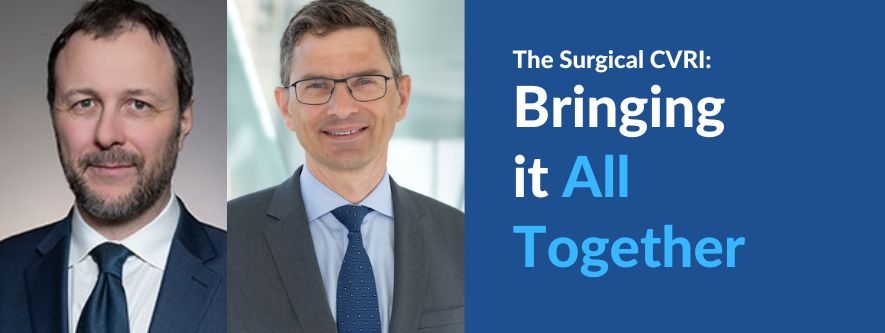
The newly established Columbia Surgical Cardiovascular Research Institute (CVRI) will serve as a multifaceted resource and support system for researchers and physician-scientists in the Department of Surgery and across Columbia.
Led by Arnar Geirsson, MD, and Giovanni Ferrari, MD, the Surgical CVRI is designed to be a hub where collaborating scientists can connect with researchers and physician-scientists in the department.
“We have an incredible team of clinicians and scientists here at Columbia committed to advancing the field of surgical cardiovascular research,” says Dr. Geirsson. “The Surgical CVRI provides a platform that allows for close collaboration and sets the stage to push the envelope and bring innovative solutions to complex surgical and medical problems that will eventually benefit the patients that we take care of.”
Columbia's groundbreaking cardiac surgery research encompasses all areas of cardiovascular surgery, including heart transplantation and immunology, implantable biomaterials and medical devices, surgical models for cardiovascular conditions, heart valve and aortic diseases, and congenital heart defects.
With such a wealth of research taking place, it can be difficult to coordinate efforts with other scientists. The Surgical CVRI aims to make that collaboration more accessible for researchers within the department and across the medical center.
"It isn't always easy for our scientists to know where to start," notes Dr. Ferrari. "So we created the Surgical CVRI so we can have one place for them to reach out to all of our physicians and scientists and make connections."
The Surgical CRVI will also leverage existing resources like the Columbia Biobank for Translational Science, provide internal awards to help support individual researchers, and centralize the efforts of the department's surgical residents and students.
Drs. Geirsson and Ferrari are confident that the institute's focus on supporting faculty and fostering collaboration within Columbia will have an immediate and meaningful impact. "This will be a game-changing resource and a very effective way for the department to help the next generation of surgeon-scientists," says Dr. Ferrari.
